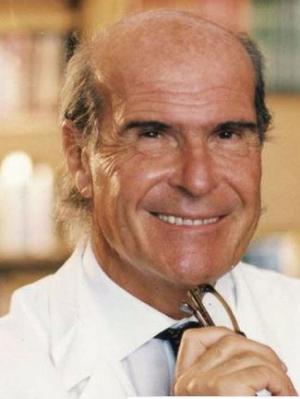Early in his long medical career, the Italian surgeon Umberto Veronesi, M.D., recognized the value of cancer prevention. His contributions over a half-century of work came not from an epidemiological perspective, but from interventions to change people’s cancer risk and improve their lives.
Known internationally as a pioneer of breast-conserving surgery for women facing an early breast cancer diagnosis, Dr. Veronesi led the first European randomized clinical trials in the 1970s, comparing a less disfiguring surgical technique to radical mastectomy, which was the prevailing standard of care. Later research from lumpectomy trials led by U.S. breast cancer surgeon, Bernard Fisher, M.D, confirmed that radical surgeries to remove the breasts carried no survival advantage to women with early stage disease.
Dr. Veronesi also championed a name change for non-invasive breast cancers, from lobular or ductal carcinoma in situ, to lobular or ductal intraepithelial neoplasia—similar to the terminology used to identify precancerous lesions in the cervix, which hold little risk for further spread. The terminology change would separate them from more advanced disease, reflecting the growing knowledge about differences in breast cancer biology, and also conferring less psychological impact on women than the word “cancer.”
In 1994, Dr. Veronesi founded the European Institute of Oncology, which he directed until his death in 2016 at the age of 90. The Milan-based institute, one of the first hospitals with a dedicated research program in cancer prevention, continues today to collaborate in numerous NCI clinical studies.
In spearheading tobacco control as Italy’s Minister of Health in the late 1990s, he lobbied to put anti-smoking ordinances in place to reduce the nation’s tobacco-related cancer incidence and death through smoking restrictions in restaurants, bars and public places.
To learn more about Dr. Veronesi, read his biography at the European Institute of Oncology.

